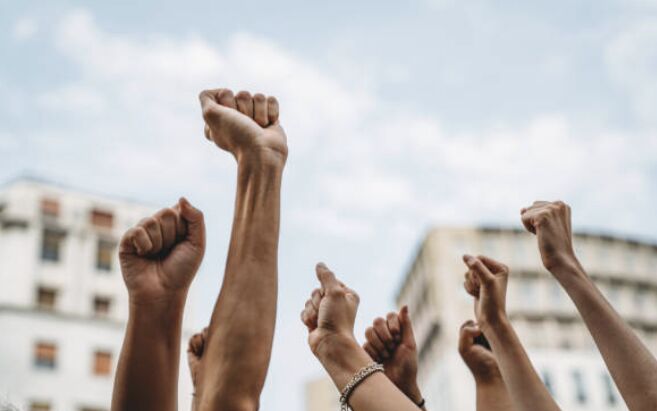Two Years After Historic Protests, Calls for Freedom and Release of Political Prisoners Continue in Cuba
Two years after the historic protests in Cuba, demands for freedom persist as activists call for the release of political prisoners and international support for democratic transition.
Protests in Cuba Two years have passed since the historic protests against the communist-run government in Cuba which were referred to as 11J. The protests, which were met with a harsh crackdown, led to the arrest of more than 1,500 people and the imprisonment of 682, according to human rights group Justicia 11J. While the government puts the number of prisoners at 488. One of the most prominent activists, Luis Manuel Otero Alcántara, wrote a letter to the Miami Herald, titled "Cuba’s authorities have stolen my youth just for speaking my mind," which detailed the harsh prison conditions he has been subjected to and concluded that, “Today every young Cuban is a political prisoner. A censored artist. An exile inside and outside Cuba.” As of June 6, he has been on a hunger and thirst strike, with no word since.
The protests of July 11, 2021, marked a turning point for the country, according to Manuel Cuesta Morúa, leader of the Council for the Democratic Transition in Cuba. He stated that there was a unification of demands for a better life with demands for freedom, a sentiment which he believes will remain in Cuban society forever. Since then, there have been sporadic protests in isolated areas, but nothing in comparison to the demonstrations two summers ago.
Other dissidents, such as Jose Daniel Ferrer and Félix Navarro, remain in prison, and Guillermo “Coco” Fariñas Hernández, winner of the prestigious Andrei Sakharov Prize for Freedom of Thought in 2010, has been on a hunger strike in his home since June 26. The Cuban government has been urged to release all political prisoners by the U.S., the European Union, the Vatican, and human rights organizations, both inside and outside Cuba. However, the dire economic conditions, including inflation and shortages in food, medicine, power and gasoline, remain unchanged, causing over 340,000 Cubans to come to the U.S. through the U.S.-Mexico border since the 2022 fiscal year began. An editorial in the state-run newspaper, Granma, accused the U.S. government of being behind the demonstrations, a claim which the U.S. denies. The Biden administration has eased some sanctions on travel and remittances to the island, and the Cuban government lifted a ban on private companies in June 2021. So far, around 7,000 companies have opened, accounting for 14% of the employed population in Cuba. The White House recently said that China was going to build an eavesdropping facility in Cuba. In Miami, a group of Republican and Democratic members of Congress marked the anniversary of the protests by calling for tougher sanctions against Cuba’s government.
Meanwhile, in Hialeah, a ceremony was held to name a portion of a street after "Patria y Vida" ("Homeland and Life"), a protest song written by a group of Cuban musicians. Manuel Cuesta Morúa's dissident group is attempting to achieve a democratic transition through peaceful and legal means. He believes that this is the only present alternative to reach the necessary changes, in addition to international visibility and backing. Two years on from the protests of July 11, 2021, much remains the same in Cuba. However, the unification of economic demands with demands for freedom, and the pressure put on the Cuban government by the international community, gives hope for a brighter future.




